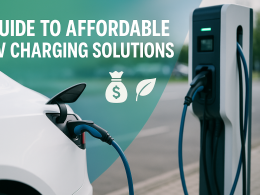Electric vehicles have become an increasingly popular choice for environmentally conscious consumers in the United States, but the high cost of these vehicles remains a barrier for many. However, with the help of government incentives such as tax breaks, American automakers are starting to make significant strides in the electric car market.
Tax breaks, also known as incentives or credits, are financial incentives provided by the government to encourage people to buy electric cars. These breaks can range from a few thousand dollars to tens of thousands of dollars, depending on the state and the vehicle’s battery capacity.
In the United States, these tax breaks have been instrumental in driving demand for electric vehicles. In 2009, the federal government implemented the Electric Vehicle Tax Credit, which provides a tax credit of up to $7,500 for new electric cars purchased. However, this credit is limited to the first 200,000 vehicles sold by each manufacturer, after which the credit is gradually phased out.
This tax break has proven to be a significant benefit for American electric car manufacturers such as Tesla, which was the first automaker to hit the 200,000 vehicle cap in 2018. The credit’s gradual phase-out has put Tesla at a disadvantage compared to other electric car manufacturers, as it has to compete with other automakers that are still eligible for the credit.
The Biden administration is looking to extend the tax credit program, with a proposal to increase the cap to 600,000 vehicles per manufacturer and to offer incentives for union-made electric vehicles. This proposal would provide significant benefits for American automakers, as it would encourage consumers to choose American-made electric vehicles over foreign-made options.
Ford, for example, is already taking advantage of tax breaks to push its electric vehicles. The company has announced plans to invest $22 billion in electric vehicles by 2025 and is offering tax incentives of up to $7,500 on its new Mustang Mach-E. This vehicle is also eligible for additional state tax breaks, which can bring the total incentives to $12,500 in some states.
General Motors is also investing heavily in electric vehicles, with plans to launch 30 new electric models by 2025. The company is taking advantage of tax breaks, such as a $7,500 federal tax credit for its Chevrolet Bolt, to help make its vehicles more affordable for consumers.
While American automakers are making strides in the electric vehicle market, foreign automakers such as Tesla, Nissan, and Toyota continue to be strong contenders. These companies have already established themselves as leaders in the electric vehicle market and are not limited by the same tax credit caps as American automakers.
However, American automakers have an advantage in that they are more likely to benefit from government policies and initiatives aimed at boosting domestic production of electric vehicles. The Biden administration’s proposed tax breaks for union-made electric vehicles, for example, would provide a significant boost to American automakers such as Ford and General Motors.
Overall, tax breaks have played a significant role in driving demand for electric vehicles in the United States, and American automakers are beginning to take advantage of these incentives to compete in the market. As the government continues to support the growth of the electric vehicle market, it is likely that American automakers will continue to make significant strides in this area.











